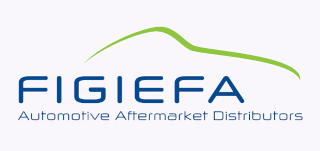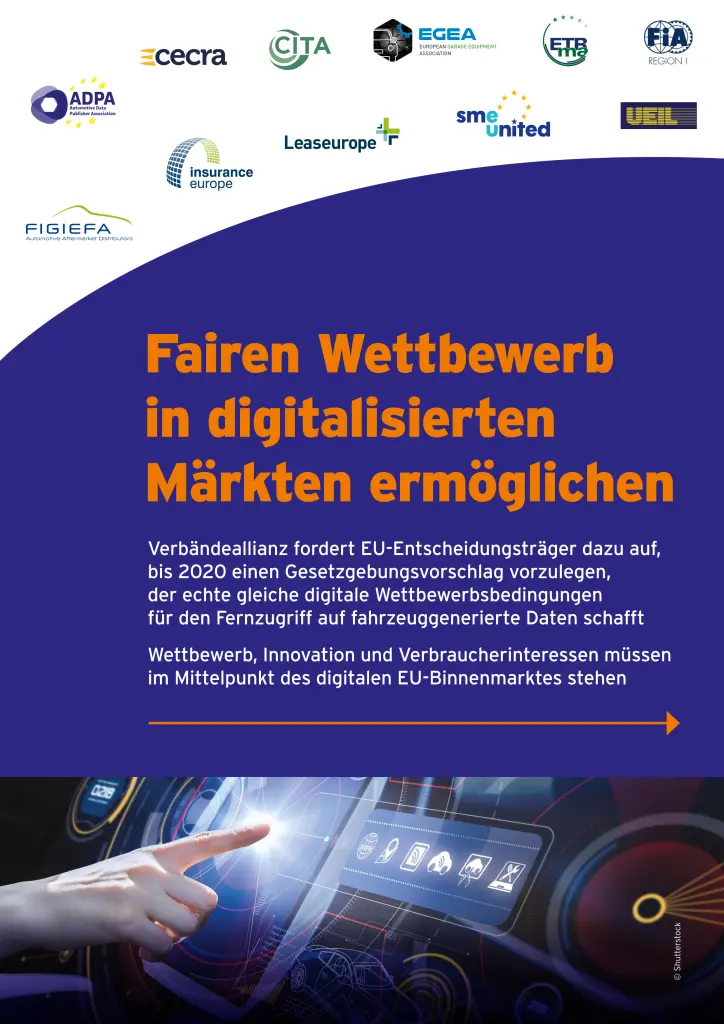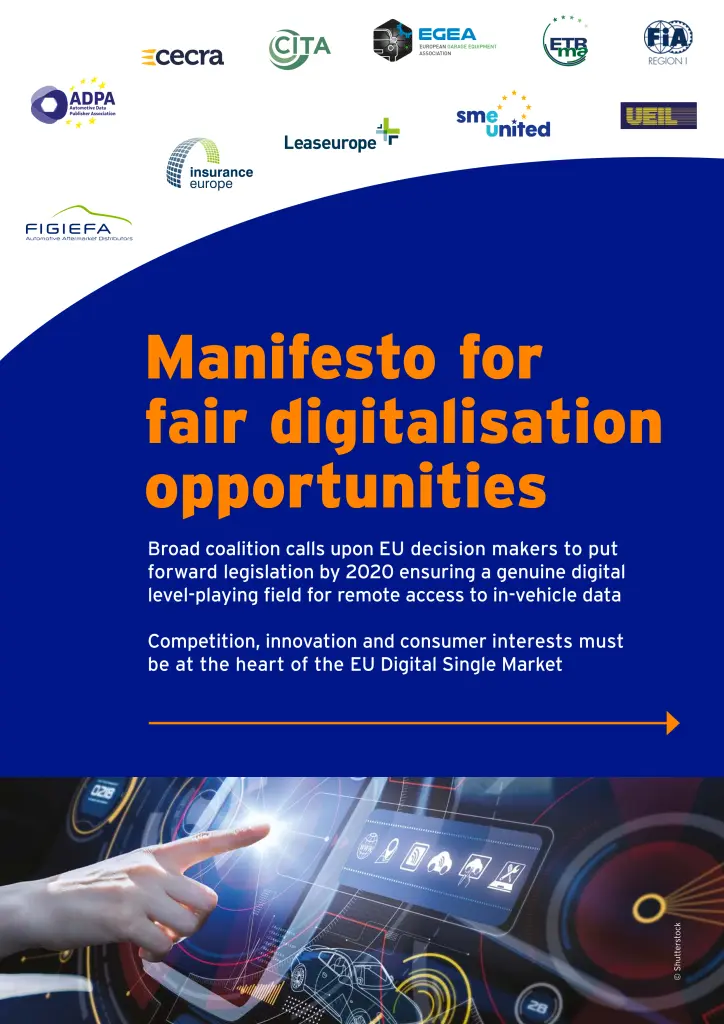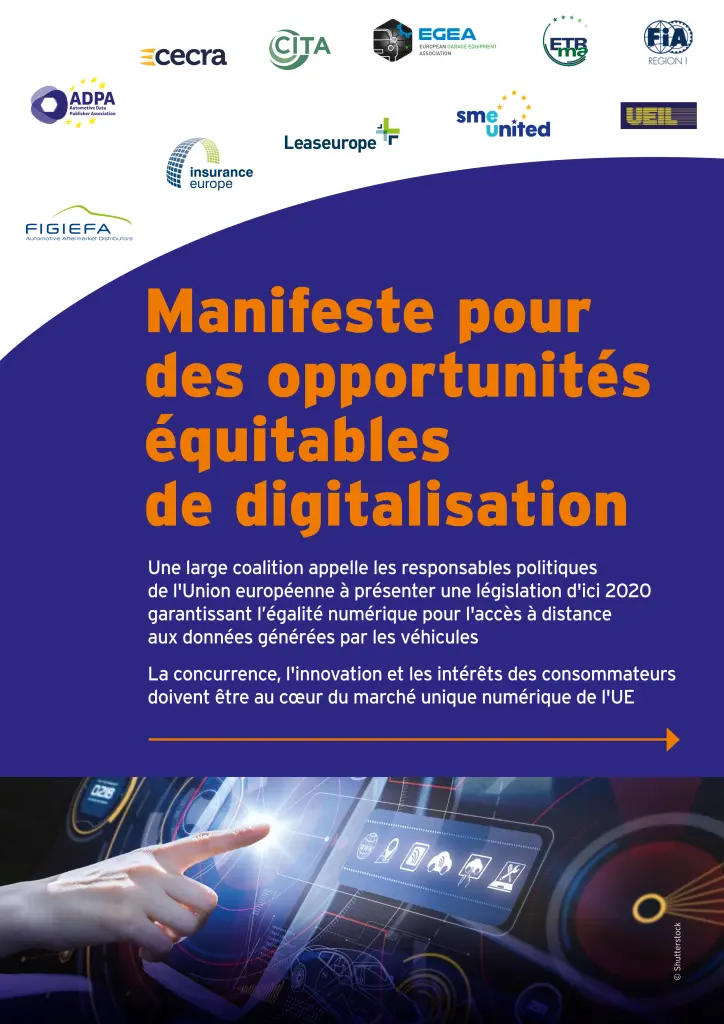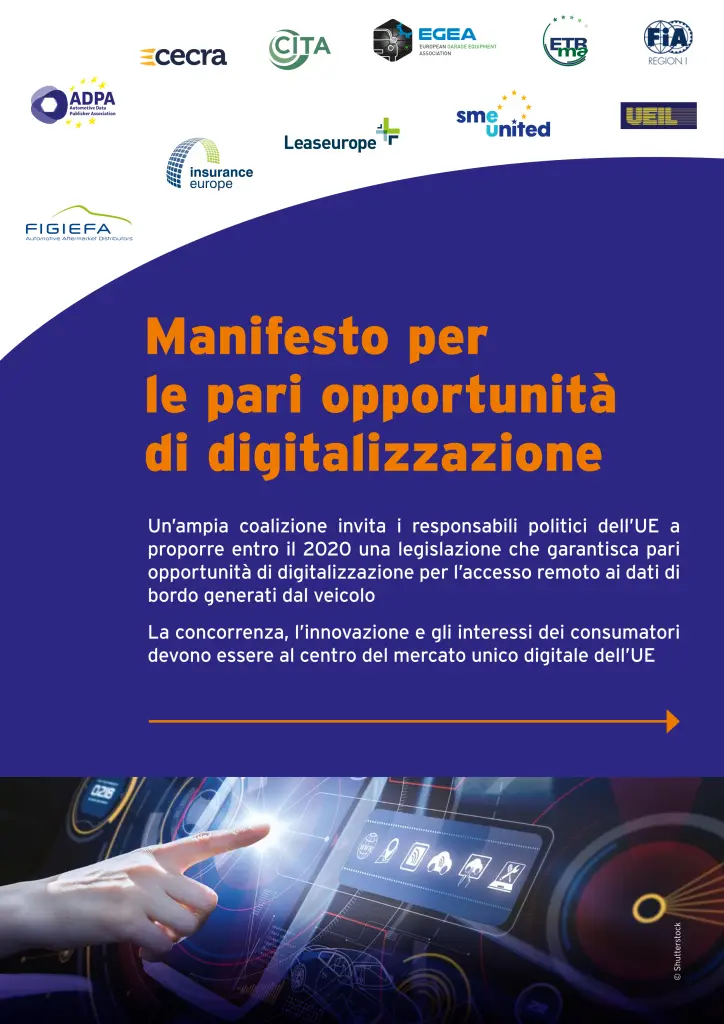Broad coalition calls upon EU decision makers to put forward legislation by 2020 ensuring a genuine digital level-playing field for remote access to in-vehicle data and functions.
In light of the new mandates of the European Commission and the European Parliament, a broad alliance of automotive sector and mobility services operators, insurers, consumers and SMEs representatives wishes to highlight the need for an updated, modern approach to the European digital economy that is in line with the institutions’ ambitious goals to foster innovation and legislate in a way that works for the modern economy.
One key element of this new approach should be remote, direct access to in-vehicle data and functional resources. A legislative solution allowing for this access would not only enable innovation, it would also improve consumer choice in the automotive aftermarket. Moreover, access to this data is essential in allowing for effective competition within the market and enabling the EU to become a frontrunner in connected and autonomous mobility and related-services.
Independent operators need four key abilities, subject where relevant to consent of the driver/owner of a vehicle, in order to be able to provide competitive and innovative services and solutions to their customers:
• Independent and direct real-time access to in-vehicle generated data that is not monitored by vehicle manufacturers, including those which are time-critical;
• Bi-directional communication with the vehicle and its functions, independent from the vehicle manufacturer;
• Safe, secure and independent remote interaction with the driver, using the in-vehicle human-machine interface functions (e.g. via the dashboard or voice commands);
• Independent software running directly in the connected vehicle using onboard computational capabilities to process any dynamically generated data as closely as possible to its source.
Extensive testing has shown that these abilities are not adequately addressed in the access model put forward by vehicle manufacturers, the so-called ‘Extended Vehicle’ (ExVe), which channels all communication for remote data access through the vehicle manufacturer’s proprietary backend server. Due to its inherent conceptual flaws, such a model would cost up to €65 billion for consumers and independent operators by 2030.
These functions are however possible with an ‘in-vehicle interoperable, standardised, secure and open-access platform’ (OTP). Its inherent security architecture would also support the highest standards in terms of cybersecurity and data privacy, and therefore would not pose a risk in terms of safety and security.
In two recent Resolutions, the European Parliament called on the European Commission to take (legislative) action to ensure “fair, secure, real-time and technology-neutral access to in-vehicle data for some third party entities”. Additionally, a number of studies by the European Commission provided further evidence of the legal and economic impact of the vehicle data access models being debated.
The current market conditions are not conducive to effective competition or the creation of innovative services that are affordable for consumers. Therefore, the EU legislative framework needs to be updated in order to both support innovation and ensure these new services are truly accessible to consumers.
